- Home
- Harlan Ellison
The Deadly Streets Page 2
The Deadly Streets Read online
Page 2
Because your towns have trees and sky and friendliness and neighborliness and love and a small school system, and a purpose for any youngster who wants one.
But if you live in New York, or Philadelphia, or Chicago, or San Francisco…you know what I’m talking about. You know those kids live on the housestoops and the streets, and in the gutters. You know they mangle their hands nervously, waiting for something to happen. And when it doesn’t—they make it happen.
You know, because they’re your kids.
You know about the Pachucos in San Diego, you know about the hoods and studs of South Philly, you know about the pitched street battles of New York’s Blooded Royals and Golden Dragons, their zip-guns blowing each other to hell. You’ve heard about the Happy Gentlemen and the Greeks, the Puerto Rican Flyers and the Jolly Stompers. All of them crave their kicks, and if they don’t fall into those kicks in the course of an average day, they scratch for the kicks.
Those kicks, and those kids, are the subjects of these stories.
A word or two hundred about the stories in this book.
With the exception of one, each story is based in verifiable fact. Truth incarnate.
Unlike many of the books or magazine stories you may have read, these stories all had their starts with the kids, in the gangs, in the streets. There is no collusion here. I know they are facts because I got them in the streets, running with a kid gang. For ten weeks I lived as one of them: going on their raids, dating their debs, attending their meetings, undergoing their initiation.
For ten weeks I was a Baron. I hung out on Stuyvesant Street, in that section of Brooklyn called Redhook. For ten weeks I wore jeans and a black leather jacket and a wide black belt with its buckle honed to razor-sharpness.
When I came out, the glamour of being the JD’s Hemingway, of living dangerously and writing about it, was gone. These were no little Dillingers, about whom legends could be spun. There’s no glamour about catching a knife in the throat. No glamour in being stomped to death. No fast living with thirty or forty teen-aged punks circling in on you, itching to use lead pipe on your face and body. No glamour at all.
It stinks. On ice.
Instead, there was the need to set down the way of it, the smell of it, and the terror of it. For them. For the ones we’ve damned to live their lives in those deadly streets.
The kids live in tenements and old brownstones that are never completely free of grime or the smell of urine. They don’t like it They know they’ve got a crowded, rotten school setup, and they don’t feature that, either. When they hit eighteen they know they might as well go into the service (because they can’t afford college) and they don’t see any point in becoming a shipping clerk or a Western Union toady. “I’ll be shippin’ out inna Merch Marine next Summer,” one of them says, and there’s a hopelessness in his voice, a defiance that suggests he’s going because he’s got no place else to go. Help me, man!
That’s what they’ve got to look forward to: parents who don’t give a creeping damn what happens to them; cops who know only that kids on the street spark trouble; teachers who wish they were paid more money, but usually don’t earn what they already get; a loss of faith in their religion, and a firmness of belief that Uncle Sam will get them eventually.
Damned. Treadmilled. Buck-passed by the parents, the teachers, the clergy and the politicians who have to worry about bigger and better Christmas decorations for the lampposts.
So they snatch their kicks while they can, and there they are…in the deadly streets…the streets where they learn their survival, and their social habits, and their sex. The rules. All the rules.
There aren’t many rules in the primer for gang kids, but they all count. They’re all easily understood because they use a simple and sound philosophy, one that proves itself true every day for them. The rules: the gang is mother, father, home, club and highest authority; it’s a stinking life, man, so get your stomps before they stomp you!
When he’s down, go for the head and groin. Never make it on the scene unless you’re shanked and the blade’s got six inches on an oiled switch. Avoid cops. Play it cool. Take what you want, and tell them but nothing.
And most important…don’t get caught!
Because of this philosophy, in many cases the social worker can’t get to the heart of the stories. That was why I ran with the gangs…so I could write about them as they really are.
The stories themselves are fiction; they are intended primarily as entertainment. But in each one there is a solid and truthful grain of fact from the streets. The grain that led to the story.
That grain of truth is not intended as entertainment.
It is intended that perhaps one kid out of the thousands who run the alleys will read this book. And when he does, it will make the difference.
The difference between that kid’s dying in bed at the age of eighty with his wife and kids around him, a successful life behind him…or dying at the age of fifteen in a dirty city street, at 4 A.M., with a .32 zip slug in his head.
In those ten weeks with the kids, I found them to be basically honest and decent, like the kids in Cuyahoga Falls or Cadiz or Plymouth. Decent but damned!
All they need is a chance—a square chance. Nobody’s asking for charity; dammit, all they need are a few breaks, and they’ll come through.
It is not, however, the purpose of these stories to reform the slums or to take the kids out of the deadly streets. If the stories make you think, that’s fine. If they make you try to find out where your son or daughter stays till all hours of the morning, that’s even better.
But first of all, if they make good reading, I’ve accomplished what I set out to do. There’s blood and unhappiness in these stories, and none of them are pretty; but then, there’s nothing pretty about life for these kids. I simply hope you don’t shrug it off and say this guy is a real tear-jerker…don’t shrug and say these things don’t happen. Because they happen every living day of the year!
There’s darkness and violence and confusion here; the reflections of a modern teen-ager’s life in an age of political immorality, guided missiles, psychiatry and high prices, and waiting to be planted when your time comes. But there’s more, I hope.
It’s easy to get carried away with the blood. But if you do, you miss the point each story tries to make.
A point about the kids.
The ones who deserve a chance to get out of the deadly streets.
The damned ones, the doomed ones.
HARLAN ELLISON
1958
RAT HATER
I had them bring Chuckling Harry Kroenfeld to me in the old Steel Pier warehouse.
Most people don’t remember that warehouse, but back in the Twenties it was one of the best in the city. Handled cargo, month in and month out, with no slack season. It was a good warehouse—far off where a scream couldn’t be heard, and dirty…very dirty; that was important.
I remembered the old Steel Pier warehouse. It was a bit of memory to me. It was the jump-off place for my sister. Well, she didn’t actually jump; she was pushed. But it didn’t make very much difference after it was done.
Harry wouldn’t like being brought by two cheap hoods, but then, he was in no position to complain. Twenty-five years ago he might have been able to do something about it, but that was twenty-five years ago. Harry and the mob had fallen out a long while back. He was lucky they had let him live after the break. But again, that doesn’t matter now.
Neither of the pistoleros who brought Harry to me knew the story. It wouldn’t have done any good to tell them, either. They were being paid and they didn’t care why I was going to kill an old, fat man. Money was money, and as Chuckling Harry used to point out to me—before he’d had my sister shot, weighted, and put in the harbor—business is undeniably business.
He was right, in a way. But revenge is revenge, too.
When they opened the seamed metal door and pushed Harry through, I was surprised at how much he’d changed.
I just stared at him for a moment, hearing with another part of my senses the two hired thugs bolting the door from the outside.
That didn’t worry me, of course. I had a key I could use to get out—afterward. But right now, we were locked in together. The only thing that kept us apart—and it was a very real barrier, I assure you—was the .45 I held oh, so steady in my left hand.
“Hello, Harry.” I said.
He was lying against the metal wall, the back of one fat hand scrunched to his mouth. I’d never seen eyes quite that large before. Or skin quite that pasty-looking. But then, I’d never actually killed a man before. Harry’d never died before, either, which rather evened things.
“Lew. L-Lew Greenberg. Hi, Lew. How long’s it been?” Chuckling Harry had always been a lousy bluff. He was stuttering and sweating; I expected him to slip and slide in his own wet in another minute.
“Well, Harry,” I said, considering—the .45 up to my lips in thought—“it’s been about eighteen years. Right after the Christmas jobs in ’57. Oh, I’m sure you remember, Harry.”
I sat down on a packing crate that creaked under me, though I don’t weigh much, and crossed my legs.
“Oh, yeah, sure—sure! Now I remember, Lew. It’s good—good to—uh—see you, Lew.” He put the strangest inflection on the word “see.”
There was only one light in the warehouse. Right in the center of the space I’d cleared of garbage and boxes; it cast a disc of yellow brilliance. All the rest of the place was shadowy dark. I’d fixed it up just for this. Even so, it was difficult telling whether Chuckling Harry was more frightened of the gun or me.
I was disappointed a bit. I’d expected more shock on his part. But I consoled myself with knowing it would come in time.
Chuckling Harry made as if to rise, watching me carefully to see if I’d stop him. I didn’t, and he got up, brushing off his suit.
“That isn’t a very expensive suit, Harry.”
He looked down at it, stretched over his paunch, as though seeing it for the very first time. “Oh, well…You know how it is, Lew. Wanted a suit in a hurry…”.
“Did you go to one of the fat men’s stores, Harry?”
He grew red, the blossoming of it making his dead white face all the whiter. He’d never liked being reminded he was an obese hulk.
“Fat man’s store, hell! I got this uptown! Bought it at…” He started to continue, caught another short look at the automatic in my lap, and fell silent, licking his droopy lower lip with a pink tip of tongue.
“Bet that only ran about seventy bucks, Harry. Cheap. I remember the days you used to have thirty suits, all tailor made, all over three hundred bucks each. Remember those days, Harry?”
He waved his blocky hands inadequately. “You know how things are, Lew. Times change. Why, in the old days, I was…” He ran down of his own accord, licking his lips again.
“Come on over and take a chair,” I said, motioning to the lone straight-backed chair in the center of the circle of light. He moved toward it slowly, looking around as if to make certain no one else was in the warehouse with us.
“No one else, Harry,” I said quietly.
He sat down in the chair, sliding forward a bit, allowing for his bulk. The round, saggy columns of his legs were placed far apart, supporting him. His buttocks drooped over the sides of the seat. I knew he was wondering what was going on.
He was still Chuckling Harry. He was still fat—I don’t think anything could change that. Except, perhaps, death. But Chuckling Harry Kroenfeld had altered much since the day eighteen years before, when I’d told him I had to quit the mob and find steadier employment to support my mother. Then he had been dynamic, powerful. Now he was tired and beaten. He was washed-up and washed-out Harry was an old man at last.
He still had an almost monk-like circlet of white hair ringing his bald head; his eyes were still that fishy, watery blue; his face was still puffy and drooping with lard. Looking at him there in the chair I could almost imagine the, rosebud-pink lips forming the words they’d formed when he’d said goodbye.
So long, Lew. Here’s a couple hundred, just to keep you going. No hard feelings about Sheila, of course!
Of course. He’d chuckled then, and handed me the two crisp hundred dollar bills, which I’d taken. Of course.
He wasn’t chuckling now. He looked tired and unhappy, and getting more frightened as the seconds passed.
“Wh-what are you doing these days, Lew?” he asked, toying with a pinkie ring on his right hand.
“I have a string of supermarkets, Harry,” I answered, amiably.
“Oh, yeah, yeah,” he said, waving a pudgy hand in slow remembrance. “We heard about it around. Heard you were doing real well. Real well.” He chuckled and licked his lips again, looking around, as though expecting someone else to add to the conversation.
The conversation was threatened by lag, and I certainly didn’t want that to happen. “Do you see those ropes attached to the chair, Harry?” I pointed the muzzle of the .45 at the thick cords.
A tic leaped in his right cheek, but he bent from the hips, looking at them. He didn’t answer.
“I dislike asking you to do it, Harry,” I said, politely, “but would you mind tying your feet securely?”
“Say! What is this!” Harry shouted, almost leaping up. This time I waggled the gun, indicating it would be wisest if he sat where he was. I ran a hand through my thinning hair, smiling broadly at Chuckling Harry Kroenfeld.
“I’d appreciate it if you’d tie your feet, Harry. It would facilitate matters a great deal.” I half-rose, the gun leveling as I did.
He looked at me once, quickly, seeing the big smile on my face and the big hole in the front of the automatic. He bent once more and began wrapping the thick ropes about his ankles. “Up higher, and tie them to the legs of the chair.” I directed him, seeking the most secure job.
By the time he was finished, perspiration had beaded his forehead, some of it running crookedly down his face, into the neck of his shirt.
He’d done a good job, though. I’ve got to give Harry that. I was going to give him more, of course, but I gave him that first. I don’t forget old times.
He straightened, wiping at his florid cheeks. “Say, look, Lew, I don’t know what this is all about, but I’ve got to get home. I don’t know why you had those two guys grab me when I closed the shop, but I’ve got a kid waiting, and my wife holding dinner for me, and I’ve got to get back…”
“Yes.” I cut him off. “It was rather neat the way the boys checked what time you closed, wasn’t it, Harry?” I continued to smile. My nose itched, so I rubbed it slowly.
“You don’t understand, Lew; I don’t have time for fun tonight. The wife and kid are waiting and maybe some other time, if you give me a call, we can get together…”
It was pleasant cutting him off, so I did it again. In the old days, nobody cut off Chuckling Harry Kroenfeld. “Still the same wife, Harry?”
“Yeah, yeah,” he answered, nervously, “still Helen. We got a kid now. Robert.” He bit his lip, looking pained, and I could tell his eyes were saying, I’m an old man now! Please leave me alone! Yes, he was old, but some people hadn’t gotten the chance to grow old.
“How old’s your son, Harry?” I inquired conversationally. I was interested, truly.
“Seven.” He answered me reluctantly, and I could tell he had lost his sense of hospitality. He wouldn’t be much of a conversationalist from here on out. But of course it didn’t matter.
I stood up. “Would you mind wrapping your arms around the back of the chair, Harry, I’d like to—”
“Goddamit, what the hell is this? What do you want from me, Greenberg! No, I won’t wrap—”
I’m afraid I lost my temper a bit. I grated the words really fine throwing them at him: “Get your lousy, stinking hands around the back of that chair, Harry, before I blow your guts out through your stinking fat back!”
However, I must admit it was the kind of
talk Harry had always understood best, and he slowly slid his jelly-roll fat arms around the back, joining the fingers.
I picked up the coil of rope from behind the crate and walked over to him. Then I cooled down, and became rather ashamed of myself. “I’m sorry, Harry,” I said, tightening the ropes around his hands, tying his arms securely to the chair. I was surprised how much like a baby’s his hands were. “It’s been a long time since I’ve lost my temper. Forgive me, Harry?”
He didn’t answer. I put the barrel of the gun at his ear. “Forgive me?” I asked again, most sincerely.
He bobbed his head, his sagging jowls bobbing humorously. “Yeah, yeah, I forgive you, Lew.” I finished tying him.
I went back to the packing crate, sucking on my lower lip in thought. “So your son’s seven now, is he?” I nodded my head in admiration. “Bet he’s a cute little boy. Just like his pop,” I said, smiling toward Chuckling Harry but keeping the gun on him.
“How old would Shelia be now, Harry?” I asked, interested, though I knew, of course.
I could tell he knew what this was all about, suddenly. If I’d thought he was white before, now he became chalky. He shook, and the chair clattered a bit on the cement floor.
“Look…Lew…that’s all in the past…you wouldn’t…I’m an honest guy now, Lew, I broke with the mob years ago…I’ve been going straight…I’m sorry, Lew…she just found out a few things, and I couldn’t chance having her around! She was too dangerous…you understand, don’t you. Lew?”
He was bubbling, froth starting to ooze from a corner of his mouth. I didn’t feel sorry for him.
“Do you still hate rats, Harry?” I asked, looking back over my shoulder at the dimness of the warehouse.
His head came up sharply; his nostrils quivered; the tic came once more. “R-rats?”
“Why, yes, Harry. Rats. I know how much you hated them.”

 Repent, Harlequin! Said the Ticktockman
Repent, Harlequin! Said the Ticktockman Broken Glass
Broken Glass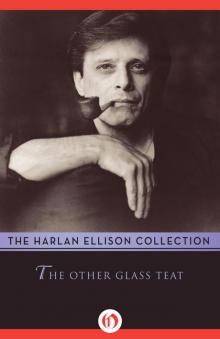 Other Glass Teat
Other Glass Teat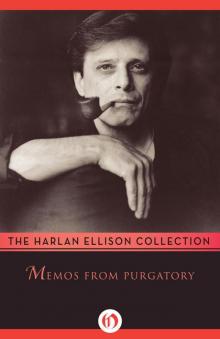 Memos From Purgatory
Memos From Purgatory I Have No Mouth and I Must Scream
I Have No Mouth and I Must Scream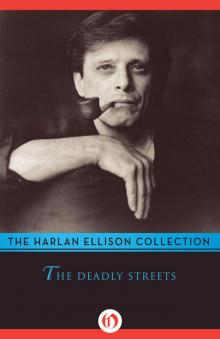 The Deadly Streets
The Deadly Streets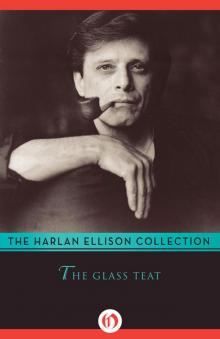 The Glass Teat
The Glass Teat Paingod and Other Delusions
Paingod and Other Delusions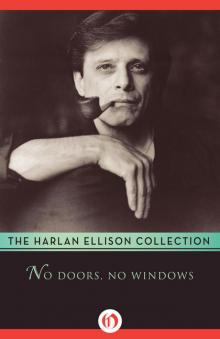 No Doors No Windows
No Doors No Windows Strange Wine
Strange Wine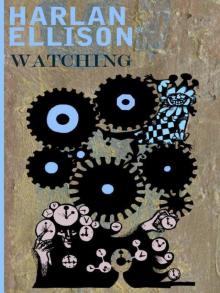 Harlan Ellison's Watching
Harlan Ellison's Watching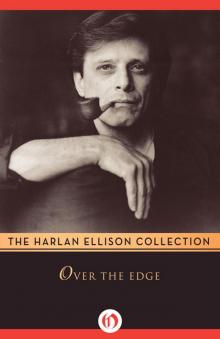 Over the Edge/An Edge in My Voice
Over the Edge/An Edge in My Voice Troublemakers: Stories by Harlan Ellison
Troublemakers: Stories by Harlan Ellison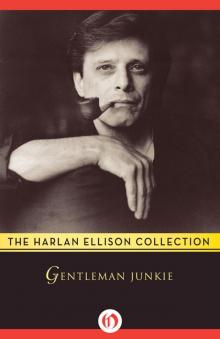 Gentleman Junkie and Other Stories of the Hung-Up Generation
Gentleman Junkie and Other Stories of the Hung-Up Generation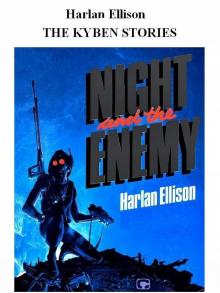 The Kyben Stories
The Kyben Stories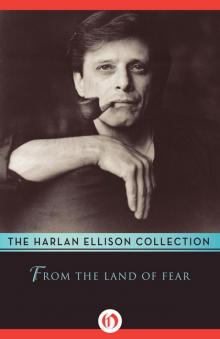 From the Land of Fear
From the Land of Fear The Top of the Volcano: The Award-Winning Stories of Harlan Ellison
The Top of the Volcano: The Award-Winning Stories of Harlan Ellison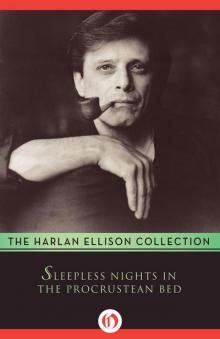 Sleepless Nights in the Procrustean Bed
Sleepless Nights in the Procrustean Bed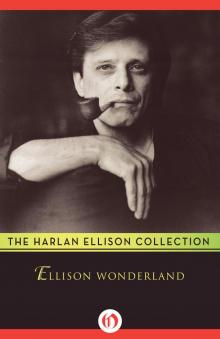 Ellison Wonderland
Ellison Wonderland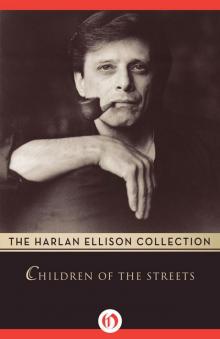 Children of the Streets
Children of the Streets Can & Can'tankerous
Can & Can'tankerous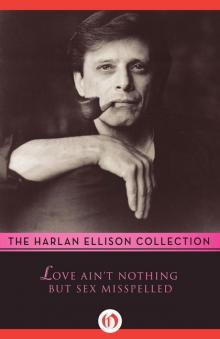 Love Ain't Nothing but Sex Misspelled
Love Ain't Nothing but Sex Misspelled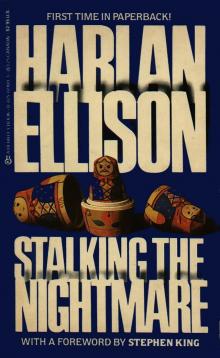 Stalking the Nightmare
Stalking the Nightmare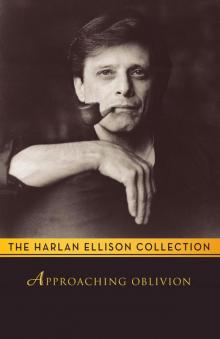 Approaching Oblivion
Approaching Oblivion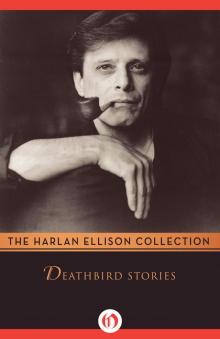 Deathbird Stories
Deathbird Stories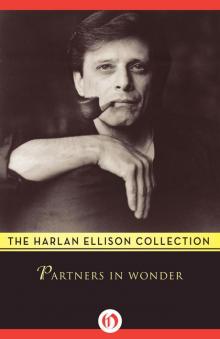 Partners in Wonder
Partners in Wonder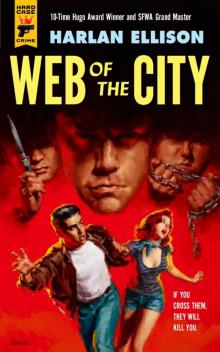 Web of the City
Web of the City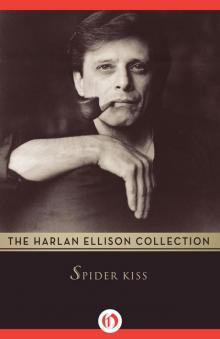 Spider Kiss
Spider Kiss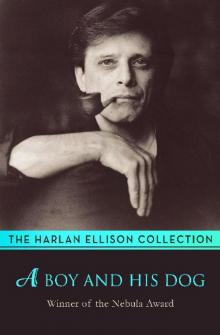 A Boy and His Dog
A Boy and His Dog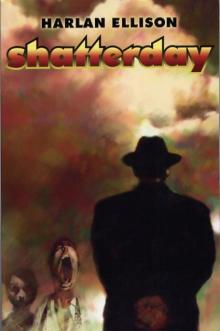 Shatterday
Shatterday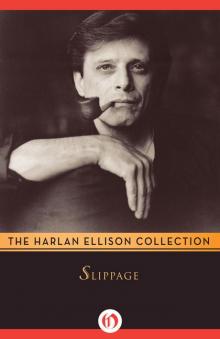 Slippage: Previously Uncollected, Precariously Poised Stories
Slippage: Previously Uncollected, Precariously Poised Stories Repent, Harlequin! Said the Ticktockman
Repent, Harlequin! Said the Ticktockman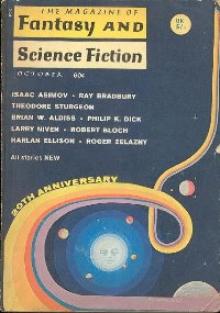 Come to Me Not in Winter's White
Come to Me Not in Winter's White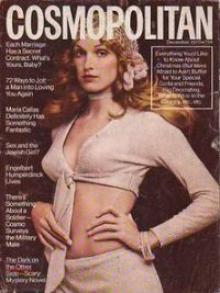 The Song the Zombie Sang
The Song the Zombie Sang The Other Glass Teat
The Other Glass Teat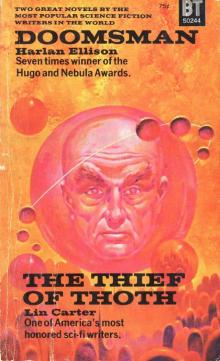 Doomsman - the Theif of Thoth
Doomsman - the Theif of Thoth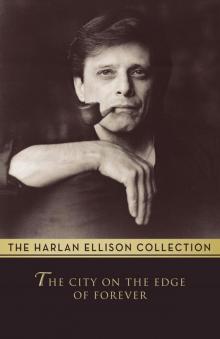 The City on the Edge of Forever
The City on the Edge of Forever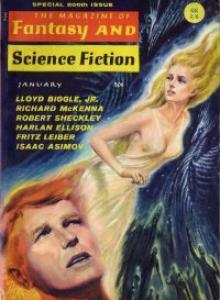 I See a Man Sitting on a Chair, and the Chair Is Biting His Leg
I See a Man Sitting on a Chair, and the Chair Is Biting His Leg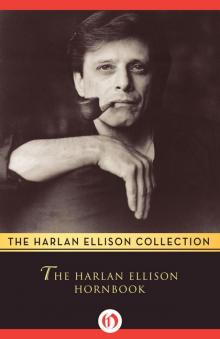 The Harlan Ellison Hornbook
The Harlan Ellison Hornbook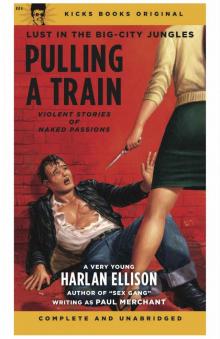 Pulling A Train
Pulling A Train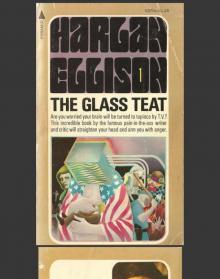 The Glass Teat - essays of opinion on the subject of television
The Glass Teat - essays of opinion on the subject of television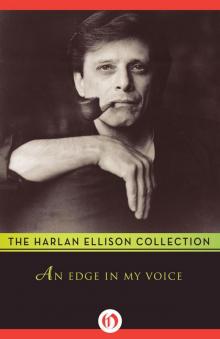 An Edge in My Voice
An Edge in My Voice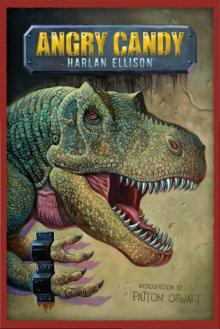 Angry Candy
Angry Candy Troublemakers
Troublemakers The Top of the Volcano
The Top of the Volcano Over the Edge
Over the Edge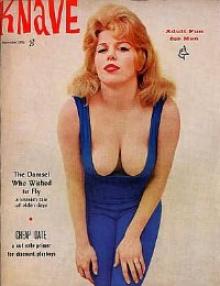 Survivor #1
Survivor #1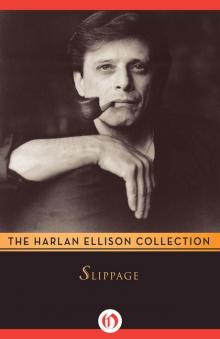 Slippage
Slippage